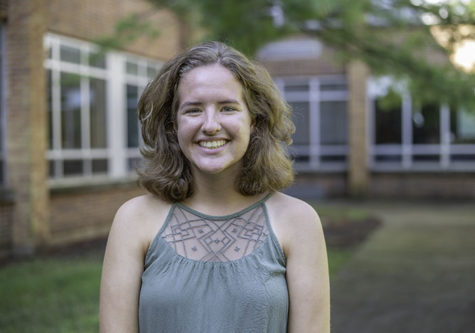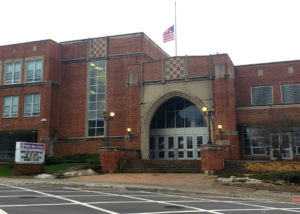Talking about sexual assault and misconduct in the school
Sign for the Counseling Office.
Sexual assault and misconduct in the workplace has been an increasing topic ever since Tarana Burke started spreading the #MeToo movement in late 2017. The Downers Grove community was especially impacted when accusations against former DGN band director William Miller were shared on social media.
Many public schools shy away from the topic of sexual assault due to the controversy it may create. The District 99 Community has varying opinions about having this conversation.
Assistant Principal for Counseling and Support Services Vince Walsh-Rock feels DGS could do more to educate students on what to do if they were ever placed in a position where they feel that they’ve been violated.
“They have to know what to do and what to say. I find more times than not that students don’t necessarily know what to do and don’t know who to reach out to when something’s happening. I think that the more times we can give information and tools to students, the better off we are,” Walsh-Rock said.
Some courses at DGS naturally fit this topic into the curriculum according to social studies teacher Jordan DeLay.
“Courses like the one we have with the self-defense in the PE department, Sociology of Gender, Sociology, Psychology. Those behavioral sciences I think we try and factor these things into part of our curriculum…there are courses where you can build it in and have it be a more structured conversation, and I think that there is always room for the more, I don’t want to say casual conversation, but the more open communication about the reality of these things happening,” DeLay said.
Junior Jeremiah Byndom agrees that the topic of sexual assault does not belong in all classes.
“It depends on what class it is where I feel like it would be appropriate. In math class it would kind of be weird,” Byndom said.
The biggest concern revolving around bringing up controversial topics like these, according to freshman Gabi Rodriguez, would bring up triggering emotions by those affected by sexual misconduct.
“[I wouldn’t want them to] because it may be a little uncomfortable. I know people who have experienced that before, so it kind of hits home,” Rodriguez said.
Despite the emotional trauma these conversations might cause students to have, DeLay finds the topic too important to avoid.
“By even just bringing it up you can trigger a response that you didn’t initially plan on or purposely do. But I don’t think that’s a reason to avoid it. Just because something is possibly personal or a trigger I think it’s important to not only be able to talk about that but create an atmosphere where even those students that are more strongly impacted by it feel comfortable in engaging in conversation and coming to you if you have now triggered something that they haven’t previously talked about,” DeLay said.
English teacher Christi Littell finds both parents and schools responsible for initiating this conversation. She believes schools need to educate students about the general topic of sexual assault; whereas, parents have the responsibility of talking with their children about the specific events taking place in our community.
“Well I’ve certainly been a proponent of ‘It takes a village to raise a citizen.’…I definitely think we have an obligation and a responsibility to help keep students safe and to help educate them in ways they can keep themselves safe,” Littell said.
Jennifer Riemer, mother of senior Brooke Riemer and two DGS alum, also believes this conversation falls into the shared responsibility between the school and parents.
“[I’ve talked to my children about sexual misconduct] so they know what to watch for and that it’s OK to report it… [It’s important] to normalize the conversation and make sure they can report it if anything happens, and not be afraid to,” Riemer said.
Junior Elizabeth Chou supports the idea of putting questions relating to sexual misconduct onto the Illinois Youth Survey, an anonymous survey every DGS student is required to take each year focusing on topics regarding substance abuse and other health issues.
“I feel like that would be really beneficial…just so that maybe the board and other executives know if there is anything going on within the school that they might not know about due to kids being kids and not telling adults,” Chou said.
Student Assistance Coordinator Diana Benoist said they have not yet discussed including questions about sexual misconduct on the survey, but it is something they will consider.
“The idea is for prevention. If we’re keeping an eye on what students are doing and thinking, then when issues arise we can be aware of those and try to think about how to address them. Some of the questions will ask not just what are you doing but why and how so that we can get at hopefully intervening when problematic behaviors arise,” Student Assistance Coordinator Diana Benoist said when describing the purpose of the Illinois Youth Survey.
Though certain curriculums do cover the topic of sexual assault, neither Byndom, Rodriguez, Chou or senior Samantha Guagliardo recall having this conversation in their classes. Guagliardo finds this topic too important to avoid.
“I think in our community, sometimes we make it out as a better place than it might actually be. We might be ignoring these things for the sake of wanting to have a safe school and to have a school where stuff like that doesn’t happen. But by ignoring it and… putting it off ten years to make it bigger news kind of eliminates and invalidates victims and their experiences to an extent,” Guagliardo said.



